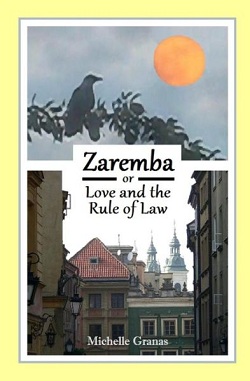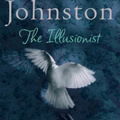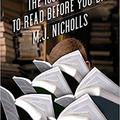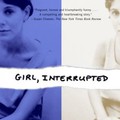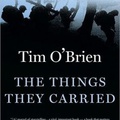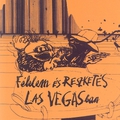Michelle Granas: Zaremba, or Love and the Rule of Law
I got an email from Michelle Granas a couple of weeks ago, she asked me whether I’d be interested in this novel. The book seemed interesting – I was mostly intrigued by the strange incongruity between the title and the plot outline: the title sounded like that of an 18th century novel (the novels of Henry Fielding and Samuel Richardson came to my mind), but the blurb revealed that the book is set in the 21st century, and the plot seemed modern and „serious” enough. Actually – I was wondering whether it’s still possible to write serious (let’s say: literary-like) fiction in the 21st century with a title like this, so I asked for a copy of the book.
So, the story of Zaremba takes place in the 2000s, in Poland. The heroine is Cordelia, an unbelievably straight and moral woman of 30-odd years. She is half-invalid, so she rarely ventures outside from her secluded home, instead, she spends her time taking care of her family members who are quite out of this world and/or mentally ill. Her father is an old university professor whose conversation is almost exclusively made up of quotes from poems; her mother is seriously delusional; and her brother is a modern-day cave-dweller incapable of normal communication with people. None of them has much to do with the world outside, but later it turns out that sometimes they are capable of action when there’s a crisis.
At the beginning of the story, Cordelia accidentally meets Zaremba, a rich, mysterious and very attractive businessman. Zaremba is fleeing from the authorities who are after him for (perhaps concocted?) reasons. Cordelia’s family hides him, and Cordelia quickly develops a love interest in Zaremba during the days they spend together, but in the meanwhile she’s constantly fighting with her conscience because – despite her love for him – she’s not entirely sure that Zaremba is innocent, and she’s unable to really attach herself to someone who might just be guilty of some crime. Anyway, Cordelia decides to help Zaremba in his fight for the truth, and the two of them get into quite a lot of dangerous situations while they try to prove the man’s innocence.
For me, this is a very strange novel – for the reason I already hinted at before. Obviously, I’m exaggerating here, but I guess the last time someone wrote a serious novel about a disadvantaged-but-morally-impeccable woman getting together with an impossibly-masculine-quasi-bad-guy (who’s not a bad guy after all) was sometime in the 19th century. Yet, Zaremba is a very contemporary novel, not only because it was published in 2013, but also because the problems/conflicts it features are very contemporary. The main theme of the novel (besides the adventurous, sometimes funny, sometimes truly heart-wrenching story of Cordelia’s and Zaremba’s love) is the seedy side of politics in a relatively newly-democratized country: there’s corruption here; there’s the deliberate misinterpretation of laws; and there are witch-hunts going on against people who happen to stand in the way of the political elite. (Zaremba is also the victim of one such witch-hunt.)
The love story reminiscent of the 19th century and the main conflict which is very much of the 21st century form a curious mixture, and I must add that there’s not a trace of postmodernism and irony here (there’s quite a lot of humor, though, of a very enjoyable kind) – so this is serious. And my mind somehow objects to this because I live in the post-postmodern age, and I’m used to books which are ironic through and through; even the realistic books are realistic in an ironic way. And Zaremba is definitely not ironic, and somehow the sheer seriousness of the story makes this book a bit unreal(istic) to me.
But at the same time I hugely enjoyed reading this novel, I was constantly worried about the protagonists, I was anxious about their well-being, and I kept thinking: „oh, please, let this end well”. I’m no longer used to this feeling (I really read too much postmodern literature, I think), but I’m happy to have experienced it again now.
And anyway – perhaps this is already the post-post-postmodern era, and it’s possible again to write romantic-adventurous, let’s-fight-for-the-truth stories – seriously, and entertainingly.
So, the story of Zaremba takes place in the 2000s, in Poland. The heroine is Cordelia, an unbelievably straight and moral woman of 30-odd years. She is half-invalid, so she rarely ventures outside from her secluded home, instead, she spends her time taking care of her family members who are quite out of this world and/or mentally ill. Her father is an old university professor whose conversation is almost exclusively made up of quotes from poems; her mother is seriously delusional; and her brother is a modern-day cave-dweller incapable of normal communication with people. None of them has much to do with the world outside, but later it turns out that sometimes they are capable of action when there’s a crisis.
At the beginning of the story, Cordelia accidentally meets Zaremba, a rich, mysterious and very attractive businessman. Zaremba is fleeing from the authorities who are after him for (perhaps concocted?) reasons. Cordelia’s family hides him, and Cordelia quickly develops a love interest in Zaremba during the days they spend together, but in the meanwhile she’s constantly fighting with her conscience because – despite her love for him – she’s not entirely sure that Zaremba is innocent, and she’s unable to really attach herself to someone who might just be guilty of some crime. Anyway, Cordelia decides to help Zaremba in his fight for the truth, and the two of them get into quite a lot of dangerous situations while they try to prove the man’s innocence.
For me, this is a very strange novel – for the reason I already hinted at before. Obviously, I’m exaggerating here, but I guess the last time someone wrote a serious novel about a disadvantaged-but-morally-impeccable woman getting together with an impossibly-masculine-quasi-bad-guy (who’s not a bad guy after all) was sometime in the 19th century. Yet, Zaremba is a very contemporary novel, not only because it was published in 2013, but also because the problems/conflicts it features are very contemporary. The main theme of the novel (besides the adventurous, sometimes funny, sometimes truly heart-wrenching story of Cordelia’s and Zaremba’s love) is the seedy side of politics in a relatively newly-democratized country: there’s corruption here; there’s the deliberate misinterpretation of laws; and there are witch-hunts going on against people who happen to stand in the way of the political elite. (Zaremba is also the victim of one such witch-hunt.)
The love story reminiscent of the 19th century and the main conflict which is very much of the 21st century form a curious mixture, and I must add that there’s not a trace of postmodernism and irony here (there’s quite a lot of humor, though, of a very enjoyable kind) – so this is serious. And my mind somehow objects to this because I live in the post-postmodern age, and I’m used to books which are ironic through and through; even the realistic books are realistic in an ironic way. And Zaremba is definitely not ironic, and somehow the sheer seriousness of the story makes this book a bit unreal(istic) to me.
But at the same time I hugely enjoyed reading this novel, I was constantly worried about the protagonists, I was anxious about their well-being, and I kept thinking: „oh, please, let this end well”. I’m no longer used to this feeling (I really read too much postmodern literature, I think), but I’m happy to have experienced it again now.
And anyway – perhaps this is already the post-post-postmodern era, and it’s possible again to write romantic-adventurous, let’s-fight-for-the-truth stories – seriously, and entertainingly.

